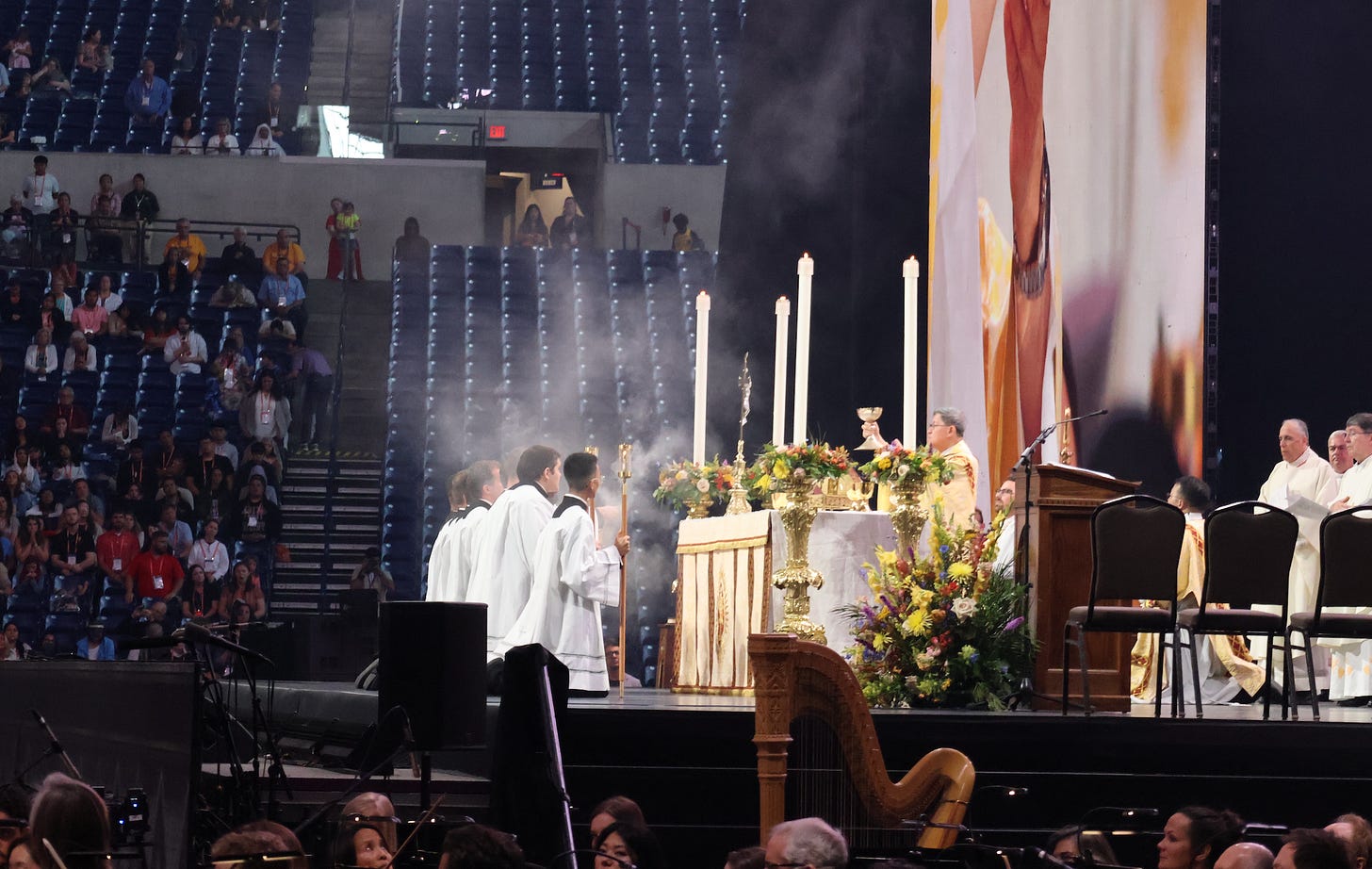‘To love and serve the Lord’ - The Eucharistic Congress concludes
The NEC reporter's notebook
Pilgrims packed Indianapolis’ Lucas Oil Stadium Sunday morning for a Mass that would close the Church’s National Eucharistic Congress — and for a message from a Vatican cardinal that they should see each other as gifts from God, and take up the Gospel’s call to evangelize.
Cardinal Luis Tagle, who leads the Vatican’…

